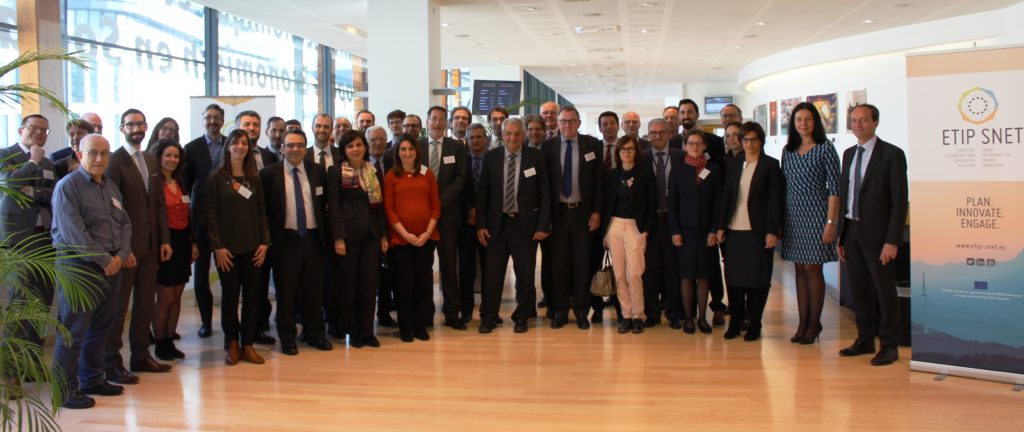
ETIP SNET held its fifth Governing board meeting and first National Stakeholders Coordination Group Meeting to discuss the implementation of Europe´s Energy Transition.
Among the many sessions held on the 27th and 28th of March in Brussels, the ETIP SNET Governing Board offered an update on the activities of the ETIP SNET Working Groups, who’s members have been recently selected from a pool of Europe’s finest experts in the field, and coordinated planning for the upcoming Regional Workshops on Energy Transition. The National Stakeholder Coordination Group also took the opportunity to present some successful projects happening at the national level.
Europe’s energy transition is key to the European and global goals of reducing greenhouse gas emissions and keeping global temperature increases well below 2°C, as agreed at the Paris climate agreement (COP21). To ensure this, more renewable and other carbon-neutral energy sources need to be introduced into Europe’s electricity, heating and cooling, and transport systems. The energy networks, especially stronger and smarter electricity grids interfaced with heating, gas and transport networks, play a key role in the energy transition while supporting security of supply and affordability.
The European Technology and Innovation Platform Smart Networks for Energy Transition (ETIP SNET) aims to make sure Europe’s Research and Innovation facilitates all energy customers and market actors to rely on optimally integrated networks, systems and markets. To meet this goal, ETIP SNET gathers various stakeholders, including TSOs, DSOs, National Representatives, Research and Academia, and is organized around 5 Working Groups which are addressing matters such as: the reliability and efficiency of the smart grid system, storage and interface to other energy networks, flexibility of generation, digitalisation of the energy system and exploitation of research results. The combined effort of the working groups looks to make Europe’s Energy Transition a necessary success.
The organisation of 16 regional workshops over the course of the next 4 years are designed to understand the exploitation of results, identify barriers and foster greater regional participation in the Europe’s Energy Union. Current national and regional R&I projects can be of significant added value as they address energy system integration issues which are in line with ETIP SNET´s thematic priorities. The knowledge-sharing between national projects and stakeholders and the implementation of R&I projects all over Europe can ensure consistency between national and European views and facilitate the identification of R&I priorities. Some examples of best practices for energy transition where highlighted during the National Stakeholder Coordination Groups meeting by the Swedish “Smart Grid Forum” and the Spanish “FutuRed” project.
The next ETIP SNET Governing board meeting is scheduled for the 30th May.
Interested by the ETIP SNET activities? Send us a mail to : info@etip-snet.eu
< Back to all entries
